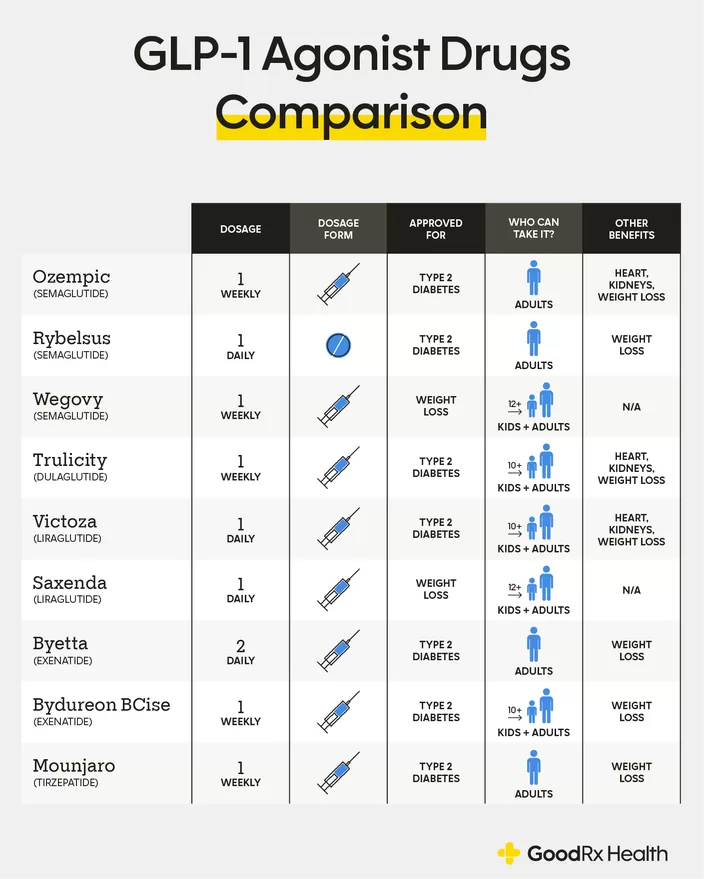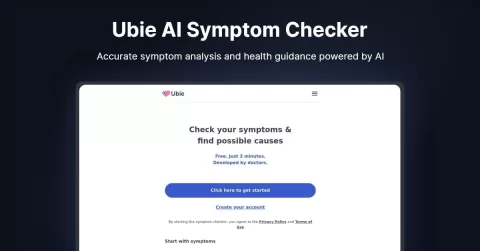Rheumatoid arthritis GLP-1 drugs are gaining attention among patients seeking effective solutions for managing their arthritis symptoms. These medications, including Ozempic and Wegovy, traditionally known for their weight loss benefits, are being recognized for their potential role in rheumatoid arthritis management. Individuals living with this autoimmune disease are reporting improved symptom control and reduced flare-ups after incorporating GLP-1 drugs into their treatment plans. The intriguing intersection of weight loss medications and autoimmune disease treatment highlights a promising avenue for patients who may struggle with obesity and its repercussions on their health. As research continues to reveal the connections between body weight and inflammatory joint conditions, GLP-1 drugs could very well reshape the future of rheumatoid arthritis treatment.
In the quest for better management of rheumatoid arthritis, alternative therapies are being explored, one of which includes the innovative use of GLP-1 receptor agonists. Often associated with weight management, these medications serve a dual purpose by also addressing symptoms of autoimmune diseases, particularly rheumatoid arthritis. Their metabolic benefits, such as improving inflammatory responses and reducing joint pain, shine a light on the importance of comprehensive approaches in treating chronic conditions. As more patients report positive experiences with drugs like Ozempic and Wegovy, the medical community is increasingly intrigued by their capability to transform treatment protocols. This exploration represents a significant shift in the understanding and management of ecosystems involving obesity and autoimmune disorders.
Understanding the Role of GLP-1 Drugs in Rheumatoid Arthritis Management
GLP-1 drugs, such as Ozempic and Wegovy, have emerged as unexpected allies in the management of rheumatoid arthritis (RA) symptoms for many patients. Their primary function as weight loss medications has extended into the realm of autoimmune disease treatment, leading to promising anecdotal reports about reductions in pain and flare-ups among individuals with RA. Health experts stress that the potential of these drugs in improving RA management warrants further investigation, particularly concerning their role in combating inflammation and enhancing metabolic health.
As autoimmune diseases like rheumatoid arthritis are often exacerbated by obesity and high body mass index (BMI), GLP-1 medications could bridge an important gap in treatment options. Their dual action not only assists in weight management but may also help alleviate the systemic inflammation commonly seen in RA patients. Researchers are hopeful that the anti-inflammatory properties of these drugs will lead to a better understanding and management of RA, particularly as they affect not just joint health, but overall quality of life.
Weight Loss Medications and Their Impact on Autoimmune Disorders
The connection between weight loss medications and autoimmune disorders such as rheumatoid arthritis has become a focal point in recent medical discussions. Studies indicate that obesity can worsen RA symptoms, leading many healthcare providers to recognize weight management as an essential component of rheumatoid arthritis treatment plans. Medications like Ozempic and Wegovy not only promote weight loss but may also facilitate better disease management by addressing how body composition impacts chronic inflammation and joint health.
Moreover, the benefits of GLP-1 drugs extend beyond mere weight loss. Patients who have incorporated these medications into their routine often report reductions in common comorbidities associated with obesity, such as cardiovascular disease and diabetes. This holistic approach to treatment empowers patients to confront multiple health challenges simultaneously, illustrating the importance of integrating weight loss medications into comprehensive autoimmune disease treatment strategies.
Connecting Obesity and Rheumatoid Arthritis: The Importance of BMI Management
Research consistently shows that obesity and elevated Body Mass Index (BMI) significantly correlate with an increased risk of developing rheumatoid arthritis. This link underscores the importance of managing body weight, as higher BMI levels are associated with more severe symptoms and less favorable responses to traditional RA therapies. Dr. Elizabeth Ortiz highlights that patients with obesity often experience worsening disease progression, emphasizing the urgent need for targeted weight management solutions within RA treatment protocols.
Understanding the interactions between obesity and autoimmune diseases can empower patients and healthcare providers to devise more effective management strategies. The evidence suggests that managing obesity could lead to improved RA symptoms and a better response to medications. This connection positions weight loss not merely as a beneficial side effect of GLP-1 medications but as a strategic objective for patients dealing with rheumatoid arthritis.
The ‘Obesity First’ Approach in Treating Autoimmune Conditions
The ‘obesity first’ approach to treating autoimmune conditions emphasizes the importance of weight management before delving into more complex treatments. By prioritizing weight loss, healthcare professionals can potentially enhance the effectiveness of rheumatoid arthritis treatments and improve overall patient outcomes. Dr. Fatima Cody Stanford has noted that many patients experience significant reductions in joint pain and inflammation when they first focus on reducing their body weight.
Despite the potential of this approach, there are concerns about its universal applicability. Dr. Ortiz warns that while some patients with RA might benefit from initial weight loss strategies, this method may not be effective or suitable for everyone. Therefore, a comprehensive evaluation of each patient’s individual needs is essential to ensure a balanced treatment plan that considers the multifaceted nature of autoimmune diseases.
GLP-1 Drugs: A New Frontier in Autoimmune Disease Treatment
As discussions about GLP-1 drugs and their applicability in managing rheumatoid arthritis grow, experts are optimistic about their potential in the treatment landscape. These medications not only assist with weight loss but may also yield anti-inflammatory benefits, which could be game-changing for those suffering from autoimmune diseases. Researchers urge the need for collaborative efforts among various specialists to explore and validate the effectiveness of GLP-1 drugs in treating conditions like RA.
With ongoing research into their immunological effects, there is hope that GLP-1 medications could offer more than symptomatic relief. They might also provide substantial improvements in the underlying inflammation associated with autoimmune disorders, making them a sought-after choice in future treatment paradigms. This shift signals a need for health practitioners to stay informed about emerging therapies, paving the way for innovative strategies in managing conditions like rheumatoid arthritis.
The Future of Rheumatoid Arthritis Management: Integrating GLP-1s
Looking ahead, the integration of GLP-1 drugs into the rheumatoid arthritis management toolkit could redefine how healthcare providers address the complexities of this autoimmune disease. By combining weight loss benefits with anti-inflammatory effects, these medications might enhance the overall efficacy of standard RA therapies. This multidimensional approach represents a significant shift toward personalized treatment, where understanding the interplay between obesity and immune response becomes paramount.
As more data emerges about the positive impacts of GLP-1 drugs on rheumatoid arthritis, healthcare protocols may evolve to incorporate these findings into routine practice. Ultimately, the incorporation of GLP-1 medications could lead to improved life quality for RA patients, decreased reliance on immunosuppressants, and a more effective management framework focused on holistic patient wellness.
Patient Experiences with GLP-1 Drugs and Rheumatoid Arthritis
Real-world testimonies from rheumatoid arthritis patients who have taken GLP-1 drugs like Ozempic or Wegovy reveal fascinating insights into their effectiveness. Many individuals report experiencing fewer flare-ups and improved mobility after starting these medications, citing significant enhancements in their daily lives. As healthcare providers gather patient anecdotes, they are increasingly recognizing the role of GLP-1 drugs in comprehensive RA management.
Patient experiences highlight the dual benefits of weight loss and symptom relief, showcasing how GLP-1 medications can transform daily routines and overall health. Such accounts are vital for guiding further research, as they provide a practical context in which the scientific community can explore the complexities of managing rheumatoid arthritis through innovative drug therapies.
Understanding the Mechanism of GLP-1 Drugs in Inflammation Reduction
Delving into the mechanisms of action behind GLP-1 drugs uncovers their potential to mitigate inflammation, a hallmark of rheumatoid arthritis. These medications influence insulin secretion and help regulate blood glucose levels, which can indirectly reduce inflammatory responses within the body. As inflammation plays a central role in exacerbating RA symptoms, the anti-inflammatory effects of GLP-1 drugs could represent a novel approach to therapy.
Research is exploring how these drugs interact with immune system pathways, potentially leading to breakthroughs in treating autoimmune diseases. By better understanding how GLP-1 drugs modulate inflammation, scientists and clinicians can variably tailor RA treatments to leverage these mechanisms, creating more effective and individualized care plans for patients.
Exploring the Regulatory Landscape for GLP-1 Drugs in Autoimmunity
As GLP-1 drugs gain momentum in discussions surrounding rheumatoid arthritis, understanding the regulatory landscape becomes crucial for their integration into treatment protocols. With anecdotal evidence supporting their anti-inflammatory benefits, regulatory bodies must evaluate the safety and efficacy of these medications for RA treatment explicitly. This process will determine how quickly health practitioners can implement GLP-1 therapies into clinical settings.
The complexities of drug approval for autoimmune disorders demand thorough investigations into both short-term and long-term effects of GLP-1 medications. As regulatory evaluations continue, the outcome of these studies will inform prescribing practices and may lead to pivotal changes in managing rheumatoid arthritis as new data comes to light.
Frequently Asked Questions
How do GLP-1 drugs like Ozempic and Wegovy affect rheumatoid arthritis management?
GLP-1 drugs such as Ozempic and Wegovy have been reported to assist in managing rheumatoid arthritis symptoms by potentially reducing joint pain and flare-ups. These medications not only promote weight loss, which is crucial since higher body fat levels can worsen RA symptoms but also may offer additional anti-inflammatory benefits.
Can weight loss medications like Wegovy help reduce rheumatoid arthritis symptoms?
Yes, weight loss medications like Wegovy have shown promise in reducing rheumatoid arthritis symptoms for some patients. By promoting weight loss, these GLP-1 drugs can lead to decreased joint inflammation and improved mobility, particularly in individuals where obesity contributes to their RA severity.
What is the relationship between obesity and rheumatoid arthritis treatment outcomes?
Obesity adversely affects the treatment outcomes for rheumatoid arthritis patients, leading to more severe symptoms and reduced effectiveness of standard therapies. Managing obesity with treatments like GLP-1 drugs may enhance the overall management of rheumatoid arthritis, as weight loss can facilitate better responses to medications.
Are GLP-1 drugs effective in treating autoimmune diseases like rheumatoid arthritis?
While current research is limited, GLP-1 drugs have shown potential in providing anti-inflammatory benefits that could be advantageous for autoimmune diseases. Experts suggest that these medications may help improve the management of rheumatoid arthritis, although further research is needed to fully establish their efficacy.
How do Ozempic and Wegovy compare in their benefits for rheumatoid arthritis patients?
Both Ozempic and Wegovy are GLP-1 drugs that aid in weight loss, which can positively affect rheumatoid arthritis management. However, Wegovy is primarily used for weight management, whereas Ozempic is often prescribed for type 2 diabetes. The choice between them may depend on individual patient needs and health goals within rheumatoid arthritis treatment plans.
What should rheumatoid arthritis patients consider when using GLP-1 medications?
Patients with rheumatoid arthritis considering GLP-1 medications like Ozempic or Wegovy should discuss their overall health, weight management goals, and potential benefits with their healthcare provider. It’s crucial to create a comprehensive treatment plan that addresses both RA and obesity, as well as to consider ongoing research about the role of these medications in autoimmune disease treatment.
Is further research needed on the use of GLP-1 drugs for rheumatoid arthritis management?
Yes, further research is essential to understand the full potential of GLP-1 drugs like Ozempic and Wegovy in managing rheumatoid arthritis. Ongoing studies will help clarify their effectiveness in treating inflammatory symptoms and their role within comprehensive autoimmune disease management strategies.
What evidence supports the use of GLP-1 drugs in managing rheumatoid arthritis symptoms?
Anecdotal evidence and early studies suggest that GLP-1 drugs can improve rheumatoid arthritis symptoms through weight loss and anti-inflammatory effects. However, definitive clinical trials and systematic reviews are needed to validate these findings and establish clear treatment guidelines.
| Key Points | Details |
|---|---|
| GLP-1 Drugs for RA | GLP-1 drugs like Ozempic, Wegovy, and Zepbound may help manage rheumatoid arthritis (RA) symptoms and reduce flare-ups. |
| Link Between Obesity and RA | Higher body fat and BMI are associated with increased RA risk. Weight loss may reduce severity and improve treatment response. |
| Emerging Evidence | Anecdotal evidence suggests GLP-1 medication can help RA patients with pain management and reduce flare-ups. |
| Experts’ Insights | Experts recommend weight management in RA treatment plans, citing improved outcomes from weight loss. |
| Future Research | Further studies are needed to confirm the efficacy of GLP-1 drugs in treating RA and their overall impact on autoimmune conditions. |
Summary
Rheumatoid arthritis GLP-1 drugs are showing promise in helping manage symptoms and reducing flare-ups for patients. As additional anecdotal and research support emerges, these medications may provide dual benefits of weight management and RA symptom relief, promoting a more comprehensive approach to treatment. Ongoing studies will be crucial in determining the long-term effectiveness of GLP-1 drugs in alleviating rheumatoid arthritis symptoms, as well as their potential role in addressing obesity and chronic disease management.
The content provided on this blog (e.g., symptom descriptions, health tips, or general advice) is for informational purposes only and is not a substitute for professional medical advice, diagnosis, or treatment. Always seek the guidance of your physician or other qualified healthcare provider with any questions you may have regarding a medical condition. Never disregard professional medical advice or delay seeking it because of something you have read on this website. If you believe you may have a medical emergency, call your doctor or emergency services immediately. Reliance on any information provided by this blog is solely at your own risk.








